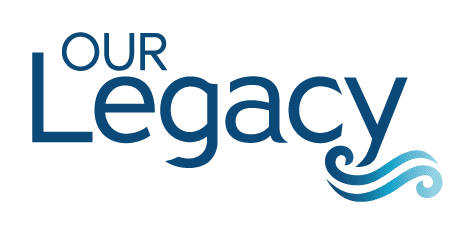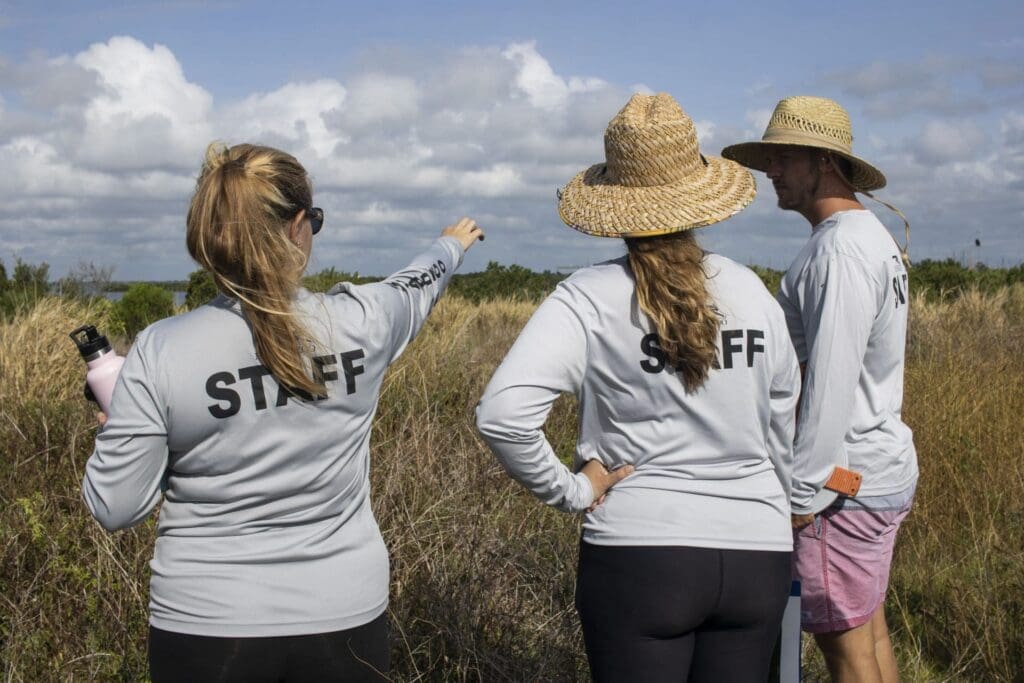As we continue fundraising for our future Aquarium, our staff is hard at work creating and finalizing plans for the aquarium and surrounding property. Our Conservation team recently made a trip to the site to get some headway on their own plans.
Amy, our sustainability manager, who has been working with the City of Cape Canaveral on some other sustainability projects, is utilizing their knowledge and experience in all ways possible for the Zoo and Aquarium. The Zoo plans to prioritize low-impact development practices and incorporate resiliency planning during the process.
A few members of our Restore Our Shores team performed a shoreline evaluation to start the restoration plan. They found a healthy-looking seagrass species called Ruppia maritima during their survey! Our goal will be to expand this seagrass through our future seagrass restoration program.
We also plan to do some oyster gardening onsite in the future. The process involves growing oyster spat, or larvae, in oyster shell halves in the lagoon. The fully-grown oysters are used in future reef-building projects. To learn more, visit our Restore Our Shores website.
Unfortunately, a large amount of an invasive plant called Brazilian pepper was found near the shoreline as well during the visit. This plant creates a dense canopy that shades out other plants and is a poor habitat for native animals. We are planning to remove the Brazilian pepper and replace it with native species like mangroves before starting the official aquarium build
We hope to share public opportunities to volunteer on our Aquarium website in the future. You can start getting involved in Restore Our Shores volunteer projects now, however!
Brevard Zoo is an independent, not-for-profit organization that receives no recurring government funding for our operating costs. Your generous support enables us to continue to serve our community and continue our vital animal wellness, education and conservation programs.

